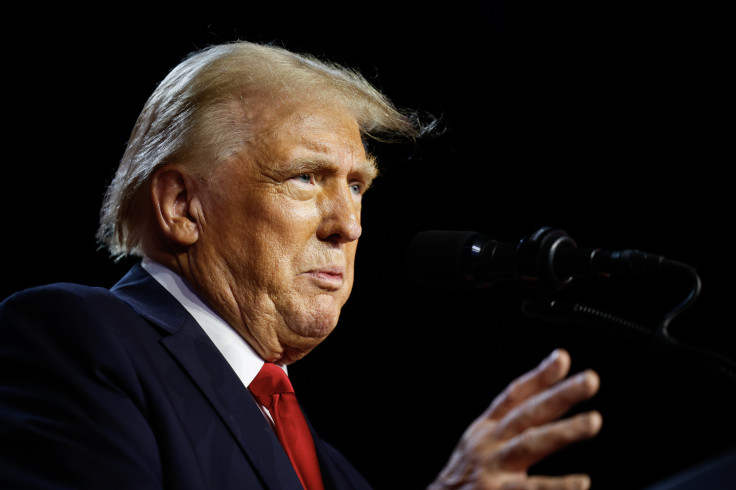
Latino voters historically pushed Donald Trump to victory in the 2024 general elections, confirming the rightward shift pundits and the media had predicted throughout the cycle. As post-election analysis ramps up, experts are seemingly pointing the finger at what might've been the main culprit— the economy.
Democrats still won the majority of the Latino vote, as they are accustomed to do. However, alarms are going off within the party as Trump, who has made a political career off of his anti-immigrant rhetoric, vacuumed around 45% of the vote, compared to Harris's 53%, a 13-point increase from 2020 and a record high for a Republican presidential nominee, according to NBC News exit polls.
Harris underperformed Biden with Hispanic voters in every battleground state, with the exception of Wisconsin, according to NBC News. Her worst numbers came from Michigan, where her 35% share dropped from Biden's 59%, and in Pennsylvania, where her share of 57% was well below Biden's 78%. She also underperformed the incumbent in immigrant hubs like Texas and Florida by double digits.
Trump himself recognized the inroads he has made across the nation. In his victory speech in Florida, the president-elect credited his victory to "the biggest, broadest, the most unified coalition" in American history.
"They came from all quarters," he said. "Union, non-union, African American, Hispanic America. We had everybody, and it was beautiful."
But as Democrats wonder how the GOP was able to get there, the reason remains abundantly clear. As the Clinton Administration used to say, "it's the economy, stupid."
Throughout the cycle, Latino voters interviewed and surveyed said the economy, inflation or higher costs was their top priority, and Trump had the advantage on that. For instance, in a September poll from NBC News/Telemundo/CNBC, 34% of Latinos ranked the cost of living as the most important issue, followed by jobs and the economy at 20%.
"Latinos were telling us that the direction of the country was horrible. The numbers were there," said Florida International University political scientist Eduardo Gamarra. "The approval for the president was also down in the dumps. The approval for Harris was higher, but there was still an overwhelming sense that the country was going in the wrong direction. And the economy was the No. 1 issue, by far."
Gamarra continued, by arguing that while the U.S. has one of the best economies in the world based on figures, "what we don't realize is that people don't consume those figures. People go to the supermarket. They go to the gas pump. They're trying to buy a home. And if any group has been affected by the economy, it has been Hispanics."
At the same time, Democrats failed to give Latinos a clear economic message while Trump focused on it in all of his rallies and commercials, University of Houston political science professor Jeronimo Cortina tells Axios.
"Latinos were saying, 'I don't care what Trump says. I want to be able to pay the bills. I want to be able to send my kid to college. I want to pay the mortgage, to afford a new car,'" Cortina said.
Immigration may have also been a factor in this shift, with Latinos being drawn into Trump's proposal to close the southern border and enact strict immigration laws. In the September NBC News poll, 35% of Latinos polled said that immigration hurts them more than it helps, the highest share of Latino voters to say so in about 20 years of surveys.
Daniel Campo, a Venezuelan-American, told BBC that Trump's claims of creeping "socialism" reminded him of the situation he left in his home country.
"I understand what [migrants] are leaving. But you have to do it the right way. I came the right way," he said. "things have to be done legally. Many of us were worried that the borders were just open [under the Biden-Harris administration."
© 2025 Latin Times. All rights reserved. Do not reproduce without permission.




